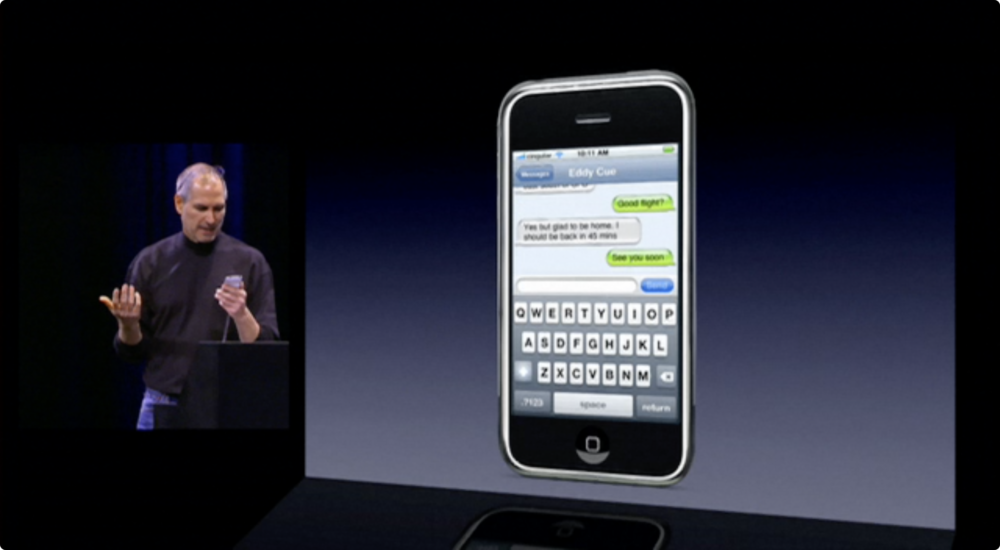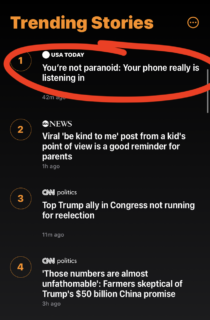A few points regarding the Wall Street Journal’s recent piece about the social stigma that comes from texting on non-Apple devices:
From the beginning, Apple got creative in its protection of iMessage’s exclusivity. It didn’t ban the exchange of traditional text messages with Android users but instead branded those messages with a different color; when an Android user is part of a group chat, the iPhone users see green bubbles rather than blue.
It’s commonly misremembered that green bubbles were invented for Android and other non-iMessage users, green being chosen explicitly to evoke the color of the Android logo. (It’s also misremembered that it’s the incoming message bubbles that are green, thus branding the sender as an Android user.) But SMS messaging on iPhone used green bubbles for outgoing messages from day one.
Here is the very first moment anybody outside of Apple saw what SMS messaging looked like on the iPhone in 2007:

Apple didn’t brand SMS messages with a different color; it branded iMessages with a different color when iMessage was launched four years later, in 2011.
It also withheld certain features. There is no dot-dot-dot icon to demonstrate that a non-iPhone user is typing, for example, and an iMessage heart or thumbs-up annotation has long conveyed to Android users as text instead of images.
The typing indicator and “tapbacks” aren’t withheld from standard SMS conversations; they’re not possible with standard SMS conversations.
I’m not saying Apple isn’t motivated to keep iMessage exclusive to their OSes; this passage in particular is pretty damning:
“In the absence of a strategy to become the primary messaging service for [the] bulk of cell phone users, I am concerned the iMessage on Android would simply serve to remove [an] obstacle to iPhone families giving their kids Android phones,” Craig Federighi, Apple’s chief software executive, said in a 2013 email. Three years later, then-marketing chief Phil Schiller made a similar case to Chief Executive Tim Cook in another email: “Moving iMessage to Android will hurt us more than help us,” he said. Another warning that year came from a former Apple executive who told his old colleagues in an email that “iMessage amounts to serious lock-in.”
